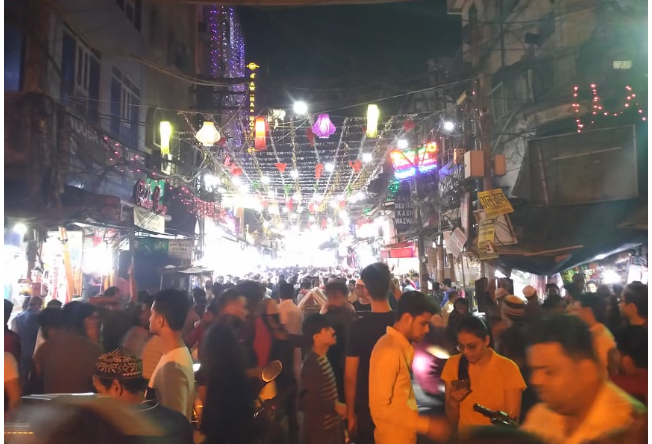By- Mohammad Javed Rasheedi
Ramzan, the ninth month of the Hijri calendar, has always been looked forward to by Muslims across the globe. Since, the world has been forced to go into a lockdown, people are concerned the coronavirus pandemic is going to change the way the Islam’s holiest month is celebrated.
On Tuesday, Delhi’s Aam Aadmi Party government imposed a night curfew in the national capital from 10 pm to 5 am from now till April 30. Section 144 will be imposed during the night which means five people can’t get together and an e-pass will be required for essential services.
Ramzan will begin from April 14. With the night curfew in place from 10 pm to 5 am till April 30 will mean that people can’t enjoy the essence of the holy month.
How does this impact Ramzan?
6:30 pm is the estimated time of Maghrib prayer after which Muslims break their day-long fast in what is called Iftaar. Sehri, the first meal, will be around 4 am, am please note. After Iftar, people rest as the body absorbs the water and other nutrients eaten, and then start preparing for Isha prayer, which is at around 8:00 pm. This Isha prayer usually lasts about 90 minutes. Imagine, getting out after the prayer and making one’s way home in a hurry without savouring the essence of Ramzan!
What is the Ramzan essence?
The tradition only seen in Ramzan is that families gather for Sehri and Iftar meal and share food, where devotees congregate for the evening prayer Taraweeh. Between Iftar and Sehri is the best time for Muslims during Ramzan to stock food and other essentials for Sehri and that too in the lanes and gullies of the city’s streets where Muslims live, which come alive with the flourish seldom seen in other times of the year.
What happened in Ramzan last year?
Imposing night curfew in the month of Ramzan, the government has told Muslims unequivocally not to do late night gatherings and social events with family and friends.
Last year, the government had advised the Muslims to perform their prayers at home due to the increasing number of Covid cases and community did the same. Mosques were closed for the entire month of Ramzan. The people were locked at their homes as the government restricted gathering; the people have performed Namaaz at home.
Is the Delhi government’s night curfew decision biased against Muslims?
As one remembers with great dismay Muslims were blamed for the pandemic outbreak when the Tableeghi Jamaat event unfolded on TV and elsewhere. The Modi government and the Kejriwal government had blamed the Tableeghi Jamaat for spreading coronavirus, which was again a dogwhistle for Muslims.
This year again, Muslims will have to make sure coronavirus doesn’t spread while the Maha Kumbh continues to jostle in the millions in Haridwar. And states vote in crowded sweaty campaigns that drag on in unending phases in the spring fast turning into a scorching summer.

